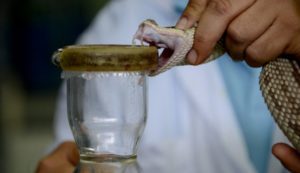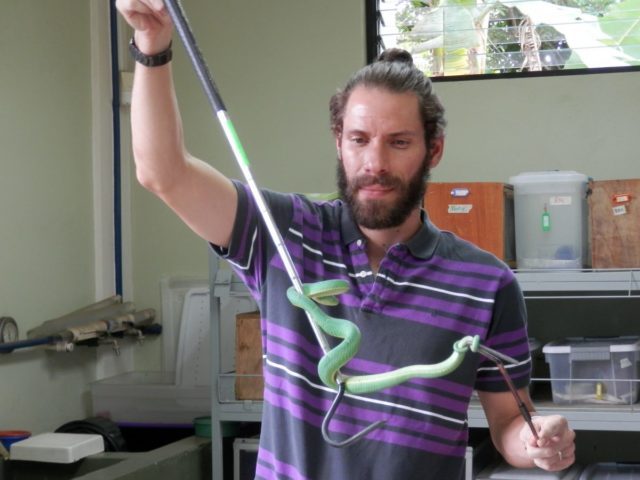As of this year, more than 2.7 million people living in poverty who suffer from snakebite poisonings will have new hope in the global strategy that will work in 4 key areas: training communities in prevention and care actions; ensuring safe and effective treatments; establishing alliances; and strengthening health systems. All this is in accordance with the announcement of the World Health Organization ( WHO) in the global launch of the strategy, on May 23rd, 2019.
Every year, there are more than 2.7 million cases of bites and, of these, 138,000 people die. The Clodomiro Picado Institute (ICP) is a world-class institution in the research and production of anti-venom serums, which on this occasion was supported by the WHO strategy, with essence of the University of Costa Rica (UCR), which will help save the lives of those human beings who suffer snake bites year after year.

“The leadership that Costa Rica has had in this international initiative derives from its long history in the management and confrontation of the problem of snake bites. The country has developed a strong platform for scientific and technological research, and in the production of an effective and safe drug”, stated Dr. José María Gutiérrez, an ICP-UCR researcher.
This achievement comes after the WHO accepted, in 2017, the Costa Rican proposal led by the UCR. They officially announced that snake bite poisoning was one of the diseases with the greatest negative impact on global health, which was not attended properly.
One of the reasons for this lack of interest was to consider the production of anti-venoms as an unprofitable business since ophidian poisoning mainly affects people from rural areas who have limited purchasing power.

As a result of the above, on March 24th, 2018, the World Health Assembly -the highest authority in the field of health at the global level- approved a proposal promoted by the Governments of Costa Rica and Colombia to initiate global actions. This time, the resolution was supported by another 31 nations.
With this new contribution, it is intended to mobilize about US$ 82 million to counteract the crisis, as well as the serious consequences that are caused, which range from emotional damage to permanent physical disability. “It is a great joy to see that WHO follows step by step the proposal that was promoted by Costa Rica since 2016 so that there is an adequate response to this public health problem worldwide. In this way, Costa Rica has counted on the support of many countries, experts, and organizations”.
The Director-General of the WHO, Dr. Tedros Adhanom Ghebreyesus, highlighted this strategy as one of the milestones of the organization in 2019. “Costa Rica should be proud of this great achievement at the global level, which reflects decades of scientific work in our country”, commented Ambassador Elayne Whyte Gómez, Costa Rican permanent representative to the United Nations (UN).

